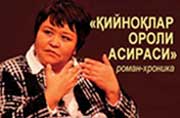The Netherlands: court stopped deportation of Kazakh Muslim refugees
Refugees from Kazakhstan won a small but very important victory in the Dutch court in Middelburg, where their deportation case was tried on July 24, 2014.
B.Shakiyev, his family of three children and relative N. Shakiyev are Kazakh refugees (their names are changedfor obvious reasons). They asked for political asylum in the Dutch capital at the Amsterdam Airportin May 2012.
They had been persecuted in Kazakhstan by the national security services for several years for their religious beliefs. As a result, they were forced to secretly leave the country and apply for asylum in the Netherlands.
But the Migration Service of the Netherlands (IND) refused to grant them political asylumin November 2012 due to absolutely biased and questionable reasons. Almost a year later, the Kazakh refugees submitted another application for asylum, but the IND rejected it again having stated that they allegedly “failed to convince that they were persecuted at home.” Later on, the IND issued an order demanding that the citizens of Kazakhstan had to leave the territory of the Netherlands within a short period of time.
Being in a hopeless and desperate situation, the refugees appealed to Mutabar Tadjibayeva,the president of “Fiery Hearts Club” International Human Rights Organization based in France.
Human rights activist Tadjibayeva and civil society activists from “Committee for Protection of Migrants’ Rights” contacted Dutch refugee lawyer Mrs. Monique van der Mark, who ensured that they were subpoenaed as witnesses.
On 24 July, during the trial in the city of Middelburg, they were summoned to the court to decide the Kazakh refugees’ deportation to Kazakhstan. Tadjibayeva and representative from “Committee for Protection of Migrants’ Rights” defended the refugees in the court. In particular, they provided facts about a critical situation with the rights of Muslim believers in Kazakhstan, persecution, fabrication of legal cases, tortures and deaths in prisons.
Documents from Kazakh human rights activist Vadim Kuramshinawere provided in the court, whom the national authorities imprisoned for his activities, photos and materials about brutal torturesand the murder of Muslim Shamil Yaroslavlev, who was killed in prison AK-159/7,the village of Dolinka, Karaganda province, photos and materials about torturesand the murder of Azamat Karimbayev, the leader of a small Muslim community in Aktobeprovince, who was killed in the prison in the town of Arkalyk, as well as evidencesof Azamat Karimbayev’swife.
Also, documents were provided about tortures and abusedof Muslim NataliaVoytenkova’s husbandin prison; she was persecuted by the National Security Committee for releasing a video with evidences. That was the reason for the authorities to file a criminal case against her; as result, her three children remained without parental care.
In addition, documents were provided about the security services of Central Asian dictators Nazarbayev and Karimov, which jointly pursue peaceful followers from Muslim communities, including the case when Kazakhstan extradited 29 Uzbek Muslim refugees to Uzbekistan,who had sought asylum in Kazakhstan.
The UN Committee against Torture forbade the Kazakh government to deport the Uzbek Muslim refugees, but nevertheless, the Kazakh authorities forcibly deported them to Uzbekistangrossly violating the international obligations. Currently, almost all these refugees have been convicted on trumped-up charges and are systematically torturedin prisons of Uzbekistan.
Thus, the Court in Middelburg, having reviewed the providedfacts, decided to stop the deportation of Kazakh refugees to their homeland, and gave representatives from the IND an opportunity to disprove the new evidences within 2-4 weeks. If the IND does not find compelling reasons, the citizens of Kazakhstan must be granted political asylum.
Dutch lawyer Monique van der Mark played a very important role in the case. She was as happy about thedecision as the refugees were. The lawyer said that for the first time in her practice the court stopped deportation of refugees; as a rule, the IND won such cases.
After the trial, Tadjibayeva and representatives from “Committee for Protection of Migrants’ Rights”went to Amsterdamto the office of the Dutch branch of Amnesty International, where they met with Mr. Henk Hulshof, the Europe and Central AsiaCoordinator. During the session, the representatives from Amnesty International made a commitment to fully support and assist the Kazakh refugees.
Human rights activist Tadjibayeva said that “Fiery Hearts Club” International Human Rights Organization will closely monitor the further fate of the Shakiyevs and their relative.
Ruslan MAITANOV












Leave a Reply